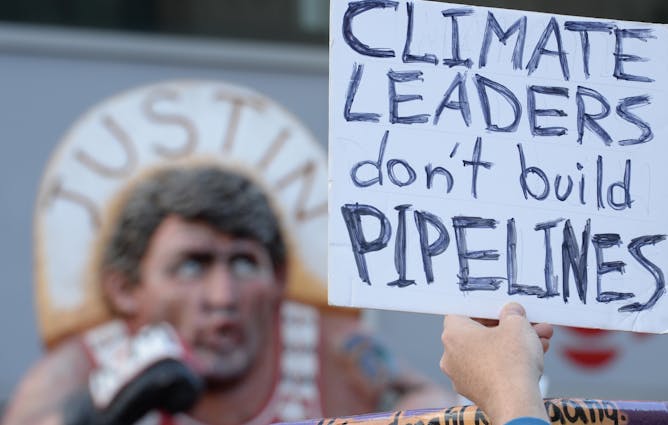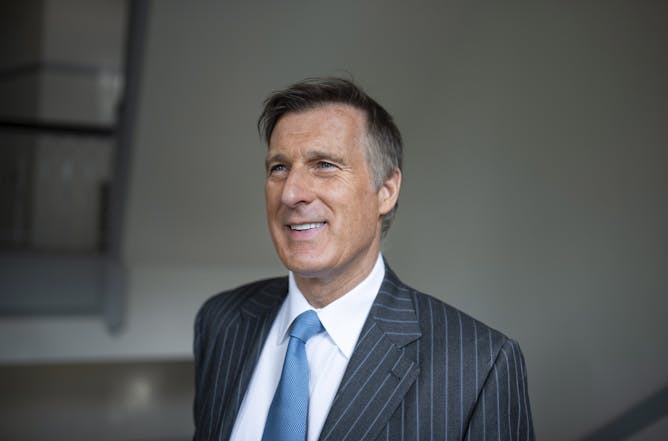|
Thirty-nine days and counting…the federal election is finally here and The Conversation Canada plans to offer our readers stories they can’t find elsewhere. As always, we’ll rely on experts who have conducted research in the areas they write about or have academic expertise to provide an informed opinion. Today we kick off our election coverage with three strong stories:
For those of you who’ve already had enough election news, we offer two health stories: how “Small Data” can help healthcare officials deliver better services and why we need to start taking into account the environmental and social costs when calculating the true costs of providing health care.
Regards,
|

This image made from a fake video featuring former U.S. president Barack Obama shows elements of facial mapping that lets anyone make videos of real people appearing to say things they’ve never said.
(AP Photo)
Dianne Lalonde, Western University
Fake videos pose a risk to democratic representation, participation, and discussion. Canadians need to be mindful of their existence as we head towards the federal election.
|

Conservative Leader Andrew Scheer attends a recent news conference in Toronto.
THE CANADIAN PRESS/Chris Young
Brian Budd, University of Guelph
Conservatives face challenges this election given issues with Andrew Scheer’s leadership, regressive developments south of the border and a burgeoning populist movement.
|

Protesters take part in a pipeline expansion demonstration in Vancouver in June 2019.
THE CANADIAN PRESS/Jonathan Hayward
Mark Winfield, York University, Canada
This election will have a major impact on Canada’s efforts to combat climate change. But how best to approach the available choices on the ballot remains a serious dilemma for Canadian voters.
|

The use of Big Data (large, aggregated datasets) to inform the provision of health care leaves out context and details.
Shutterstock
Debora Irene Christine, United Nations University; Mamello Thinyane, United Nations University
Health-care providers are increasingly relying on large data sets to deliver services. However, Small Data approaches provide nuance and context, and in some instances can be more beneficial.
|

Prevention of chronic disease can reduce the vast financial, social and environmental costs of many health-care interventions.
(Shutterstock)
Francis Vergunst, Université de Montréal; Helen Louise Berry, University of Sydney
A triple-bottom-line approach can be used to evaluate health-care interventions, such as treatment for schizophrenia.
|

Le chef du Parti populaire du Canada, Maxime Bernier, à Ottawa, le 4 septembre. Bernier est associé au mouvement populiste au Canada.
La Presse Canadienne/Justin Tang
Chedly Belkhodja, Concordia University
Le populisme se définit comme une idéologie qui vise à réduire la distance entre le peuple et le pouvoir. Il se présente comme la plate-forme du parler vrai, en opposition à la langue de bois.
|
Politics
|
-
Tangguh Chairil, Binus University
Indonesia's top engineer and former president, Bacharuddin Jusuf Habibie or B.J. Habibie, who built the country's aircraft industry from scratch, died at 83 in Jakarta on Wednesday.
|
|
Environment + Energy
|
-
Jon C. Day, James Cook University; Scott Heron, James Cook University
We all know that climate change is hurting the Great Barrier Reef. But scores of other less-publicised threats also threaten the future of the natural wonder.
|
|
|
|